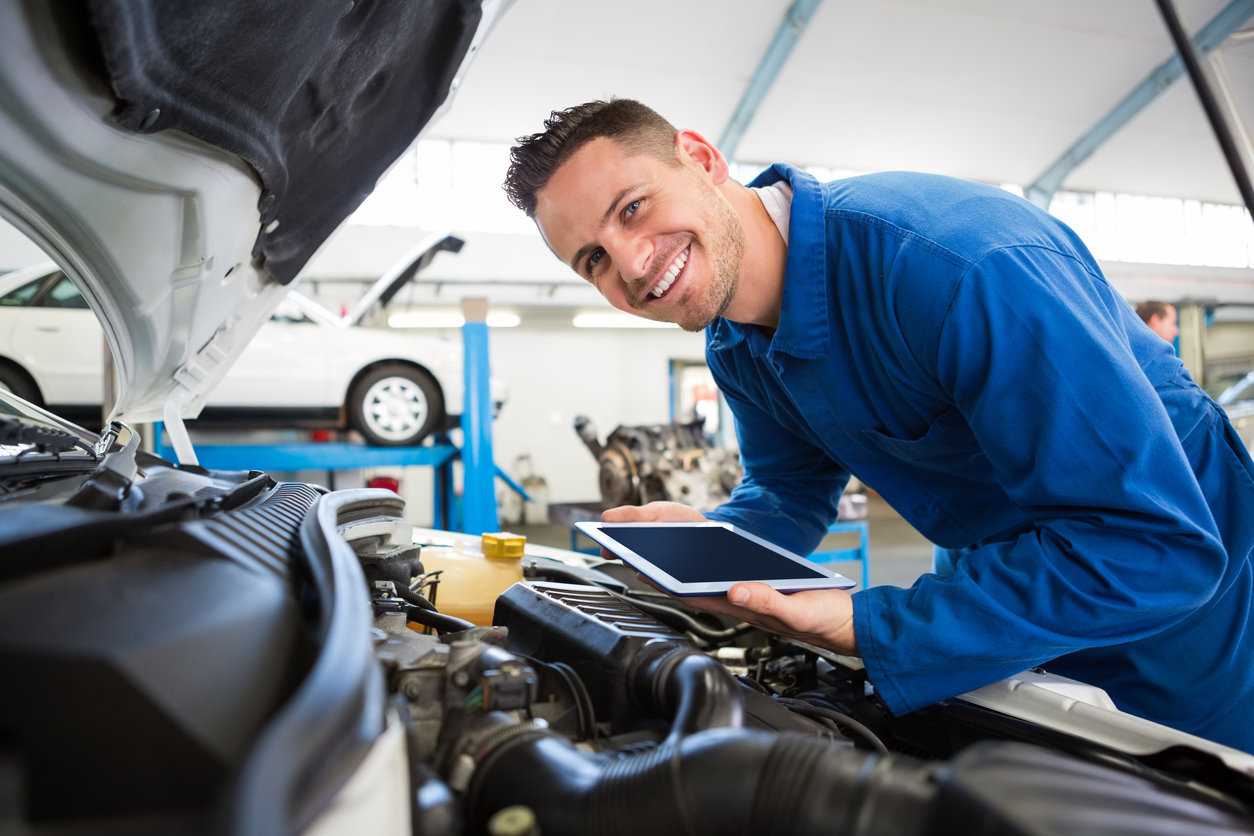It’s a question nearly everyone will ask when their car needs a repair: Should I take my vehicle to the dealership or go to an independent mechanic? The answer to this question will vary based on your situation. If your car is still under warranty, the dealership is typically the right answer. But after your warranty expires, things get a bit murkier.
Independent mechanics have the edge when it comes to cost and customer service, but dealerships have a leg up when it comes to speed, expertise, and amenities. Here’s a closer look at each factor.
Dealership Mechanics vs. Independent Shops
Cost
Speed
Customer Service
Expertise
Amenities
Cost
If you’re on a tight budget, a local independent shop is your best bet. The extra overhead costs at dealerships—which cover larger facilities, higher salaries for factory-trained technicians, and support personnel—translate to higher costs for the customer. Independent mechanics don’t typically have that extra overhead and can also offer you less expensive parts (rebuilt, refurbished, generic, or even used) than the dealer, who must use only Original Equipment Manufacturer (OEM) parts.
Independent mechanics can also get more creative with repairs. Independent shops may be able to complete repairs using fewer steps, saving on labor hours, whereas the dealership mechanic is bound to follow the repair guidelines mandated by the manufacturer. Local mechanics are also more likely to give you feedback on which repairs are absolutely necessary and which repairs can be delayed; a dealership, however, will likely want to fix everything on your vehicle. While the dealer’s approach isn’t necessarily bad, if you have an old car that you want to keep running without spending too much money, knowing what is necessary and what isn’t can be very helpful.
Advantage: Independents
Speed
If you’re on a tight schedule, the dealership is more likely to accommodate you quickly. A big facility with extra staff may have to charge higher prices, but that increased capacity also decreases your wait time. It’s simple math: More service bays, more technicians, and more tools lead to more work done every day.
Dealerships are also more likely to have the parts needed already on hand, whereas you might have to wait for parts if you go to an independent mechanic. And there’s one hidden time factor when it comes to independent shops: finding the right one. There can be dozens of independent mechanics to choose from in your town; figuring out which one is best can take time.
Advantage: Dealerships
Customer Service
If you want to speak directly with your mechanic for first-hand information regarding what’s wrong with your vehicle and what’s being done to fix it, the independent shop is the place for you.
At a dealership, you’ll usually speak with a service advisor. They may know a lot about cars, but they are more of an administrator or salesperson than they are a technician. Your vehicle will be taken into a vast service bay before reappearing hours later. Yes, it will be fixed, but you won’t know which mechanic worked on your car or if they’ll work on it again.
At an independent shop, you can speak directly with the mechanic. Many will let you take a look under the hood with them and give you their analysis first-hand. This allows you to learn about your car and develop a relationship with the person repairing it. If an independent mechanic notices something else that needs fixing now or in the near future, and it’s a relatively simple job, you can decide to try it yourself.
Dealership mechanics aren’t often rude, per se, but they are less motivated to go above and beyond with customer service because they have a constant stream of customers coming for repairs on cars still under warranty. Smart independent mechanics will strive to provide the best service possible from the minute you walk in the door. If they don’t, they know you’ll take your business to one of the other dozen shops in town.
Advantage: Independents
Expertise
Dealership mechanics are specialists who have been trained by the manufacturer. They’re the first to receive updates on recalls and technical service bulletins, and they typically work on only one make of vehicle. Whatever problem you have, a dealership mechanic has probably already seen it—and fixed it—many times.
Conversely, independent mechanics have to be generalists, so it may take them more time to solve your car’s problems. Essentially, you may be financing your mechanic’s education on cars with your make and model.
Dealerships are also very organized when it comes to documentation, and that can be useful when it’s time to relocate or sell your vehicle. A dealer can provide a complete and detailed list of every service they’ve done for your car, and that list will help you get the most money when it’s time to trade in or sell.
Vintage vehicles can be the exception to this expertise rule. You’re more likely to find an expert on your classic ride at an independent shop than you are at a dealership.
Advantage: Dealerships
Amenities
If you want a shiny waiting room with vending machines, free coffee, and comfortable chairs, get your car fixed at the dealership. Even better, they might have a shuttle service or loaner car for you, so you don’t have to sit and wait. Dealerships can afford these nicer amenities from the get-go, because they receive manufacturer’s assistance with start-up costs, and they can maintain them due to their high volume of consistent work.
Independent mechanics will often have sparse amenities, so you should be sure to call ahead to check and plan accordingly.
Advantage: Dealerships
The Bottom Line
In the end, deciding whether to take your vehicle to an independent mechanic or to the dealership for repairs is a personal choice. If you want to develop a relationship with your mechanic, get personalized service, and have options for the cheapest possible fix, the independent mechanic is for you. If you want a fast turnaround time, specialized technicians, OEM parts and processes, and comfy waiting rooms, head to the dealership. No matter which route you choose, it’s smart to ask around for recommendations, shop around for the best deal, and negotiate for an even better one when you get to whichever mechanic or dealership you choose.
Related Topics
My Check Engine Light’s On—What Do I Do Now?
What to Do When Your Car’s Air Conditioner Stops Working
The Car Maintenance Schedule You Should Follow





